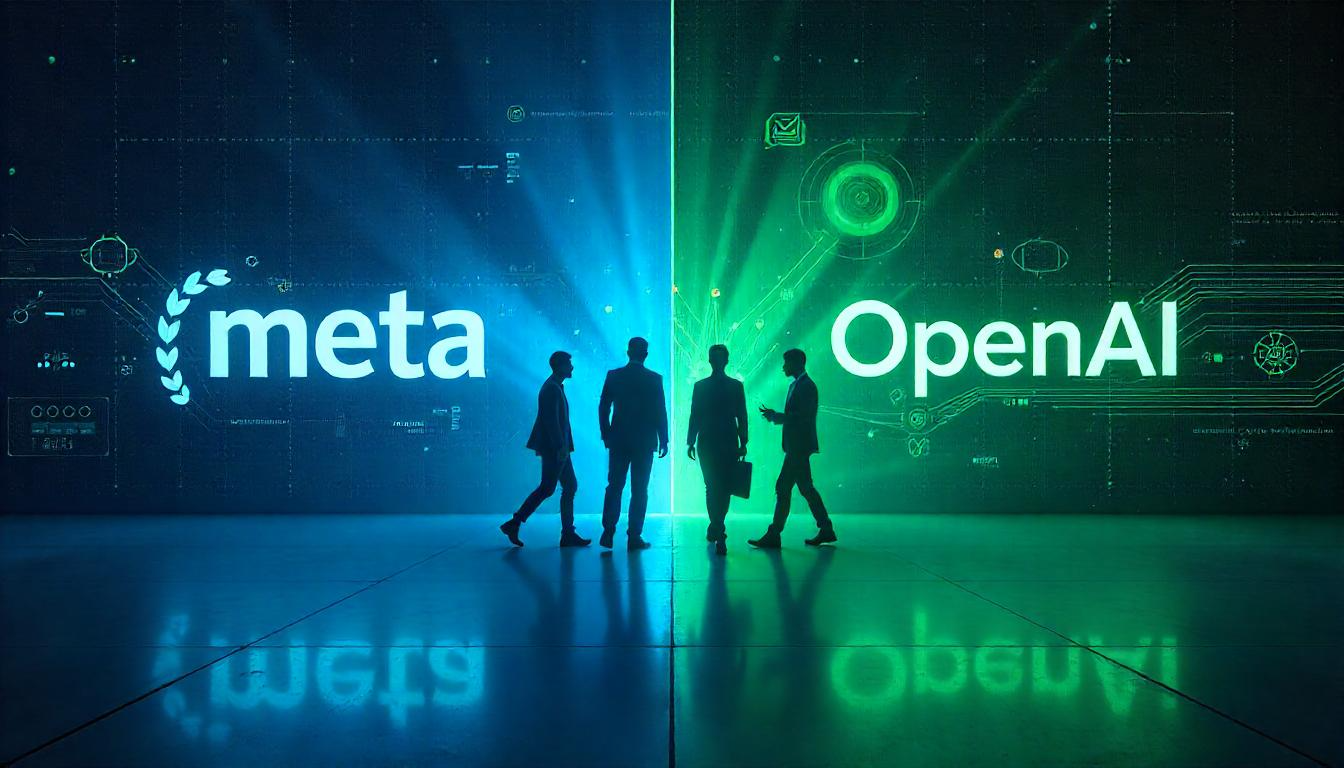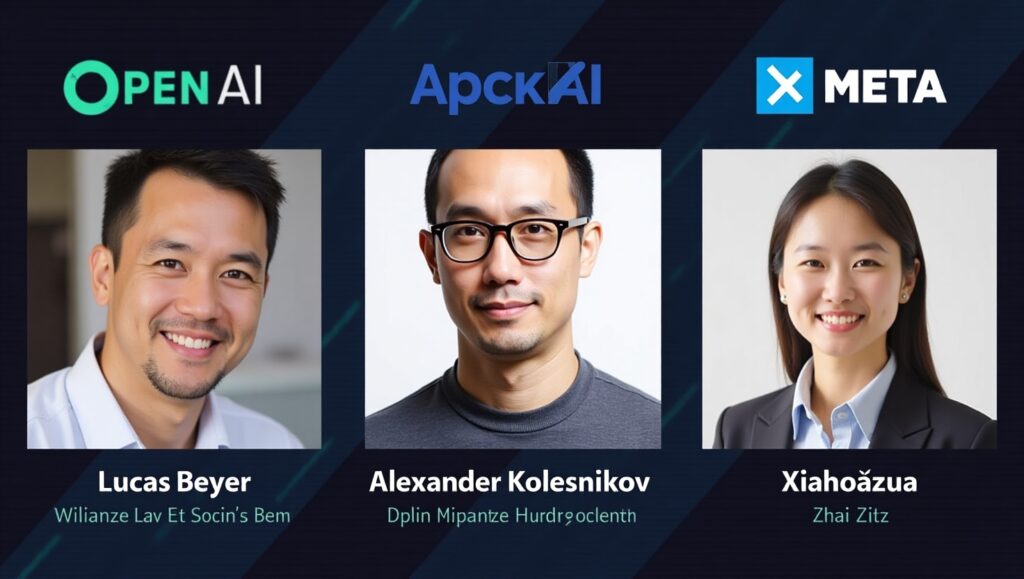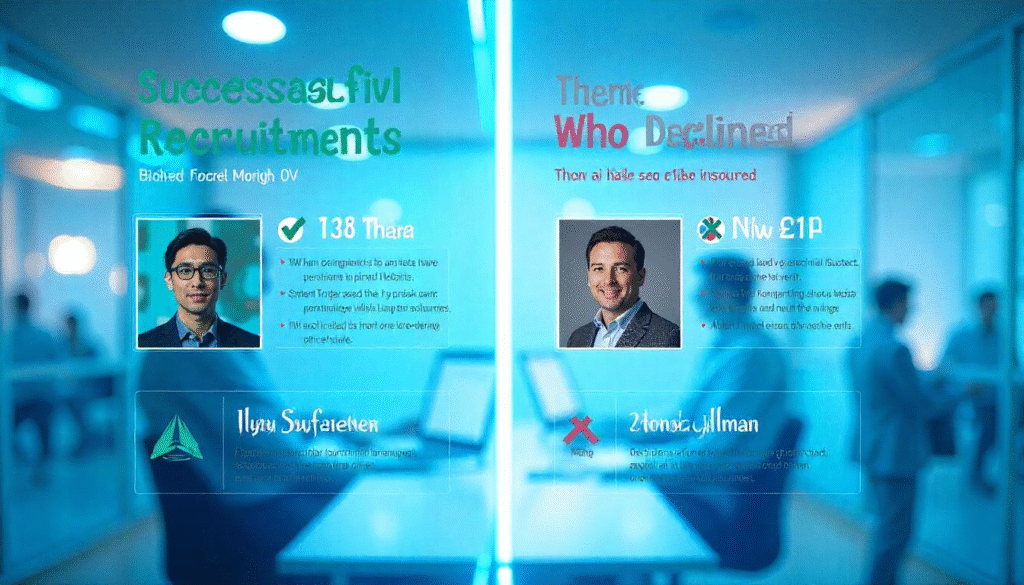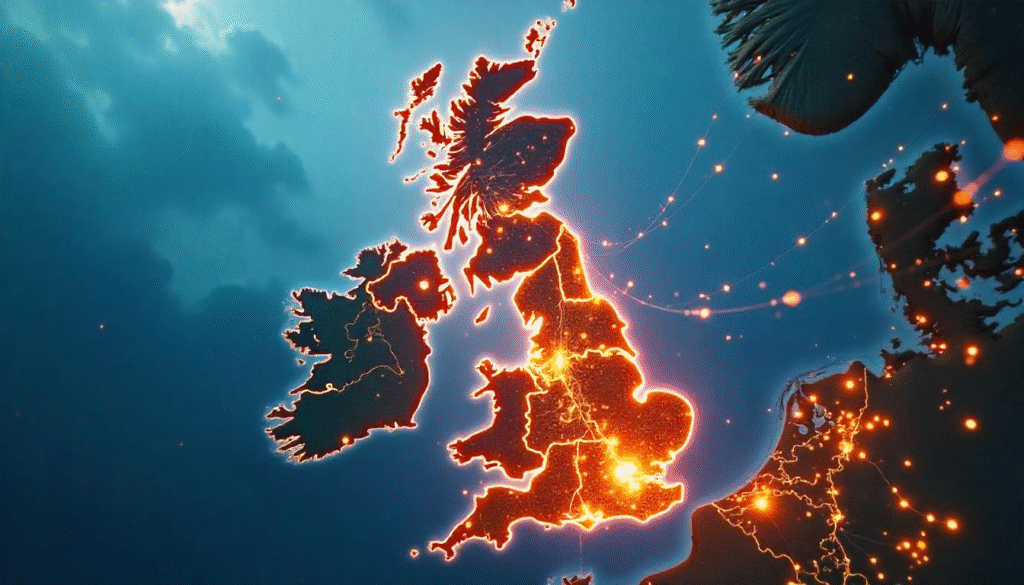Currently Empty: £0.00
Blog
Meta’s £100 Million Talent War: How Zuckerberg Snatched Three Key OpenAI Researchers


The battle for artificial intelligence supremacy just got more intense, with Meta successfully recruiting three prominent OpenAI researchers despite public criticism of their aggressive hiring tactics.
The ongoing talent war between tech giants has reached new heights, as Mark Zuckerberg’s Meta continues its relentless pursuit of the world’s brightest AI minds. Recent developments show that Zuckerberg’s controversial recruiting methods might actually be working, much to the chagrin of his competitors.
The Latest Coup: Three Top Researchers Jump Ship
Lucas Beyer, Alexander Kolesnikov, and Xiaohua Zhai have all recently left OpenAI to join Meta’s superintelligence division. These aren’t just any researchers – this trio was instrumental in establishing OpenAI’s European operations, specifically their Zurich office. Their departure represents a significant blow to OpenAI’s international expansion plans.

What makes this move particularly interesting is the context. Just weeks ago, OpenAI’s CEO Sam Altman publicly mocked Zuckerberg’s extravagant recruiting approach during a podcast with his brother Jack. Altman seemed confident that his company’s top talent wouldn’t be swayed by Meta’s offers, stating he was “really happy that, at least so far, none of our best people have decided to take him up on those offers.”
Well, that didn’t age particularly well.
The Zuckerberg Method: WhatsApp Messages and Dinner Parties
According to industry reports, Zuckerberg’s recruiting strategy is nothing if not personal. The Meta CEO has been directly messaging hundreds of AI researchers through WhatsApp, coordinating his targets through what’s been dubbed his “Recruiting Party” chat group. But it doesn’t stop at digital communication.

Zuckerberg has been hosting intimate dinner parties at his homes in Palo Alto and Lake Tahoe, creating an environment where potential recruits can experience the Meta vision firsthand. It’s a far cry from the usual corporate recruitment process – think less HR department, more Silicon Valley socialite gathering.

The compensation packages being offered are eye-watering. Reports suggest that Zuckerberg is dangling offers worth over £100 million to secure the right talent. For context, that’s roughly equivalent to the GDP of some small nations, all for the expertise of individual researchers.
Mixed Results in the Talent Arms Race
While Meta has scored some notable victories, the results haven’t been universally successful. The company recently secured Scale AI’s CEO Alexandr Wang through a £14 billion investment, making the 28-year-old one of the most expensive hires in tech history. However, some of the bigger fish have managed to slip through the net.

High-profile targets like OpenAI co-founders Ilya Sutskever and John Schulman have resisted Meta’s advances, instead choosing to establish their own startups. This suggests that whilst money talks, it doesn’t always shout loud enough to overcome entrepreneurial ambition or loyalty to existing projects.
Why This Matters for the UK Tech Scene
The implications of this talent war extend far beyond Silicon Valley. As major tech companies continue to hoover up the world’s best AI researchers, it creates ripple effects throughout the global tech ecosystem, including here in the UK.
British universities and startups are finding it increasingly difficult to retain their top AI talent when companies like Meta are offering packages that dwarf typical academic or startup salaries. This brain drain could potentially impact the UK’s position in the global AI race, particularly as the government pushes to establish Britain as a world leader in artificial intelligence.

However, there’s also an opportunity. As these mega-corporations focus their recruiting efforts on established names, there’s space for UK companies to identify and nurture the next generation of AI talent before they become targets for international poaching.
The Broader Implications
This recruitment battle highlights just how crucial AI talent has become to tech companies’ future prospects. We’re not just talking about hiring software engineers anymore – these are the individuals who could determine which company dominates the next era of computing.
The fact that CEOs are personally involved in recruitment, offering nine-figure packages, and hosting dinner parties at their homes shows how seriously these companies view the talent acquisition challenge. It’s no longer enough to offer competitive salaries and good working conditions; companies are now competing on lifestyle, vision, and unprecedented financial rewards.

What’s Next?
As the AI sector continues to mature, we can expect this talent war to intensify further. With each major breakthrough in artificial intelligence, the individuals responsible become even more valuable commodities. Companies that fail to secure top talent may find themselves falling behind in what’s arguably the most important technological race of our time.

For OpenAI, losing three key researchers represents more than just a staffing challenge – it’s a signal that their competitors are willing and able to disrupt their operations. How they respond to this latest recruitment raid could determine their ability to retain talent in the future.
As for Meta, these successful recruitments validate Zuckerberg’s approach, even if it has drawn criticism for being excessive. In a market where talent is increasingly scarce and valuable, unconventional methods might just be what’s required to stay competitive.
The question now is whether other tech giants will adopt similar tactics, potentially escalating this talent war even further. One thing’s certain: if you’re a top AI researcher, you’re probably going to be receiving some very interesting WhatsApp messages in the coming months.





